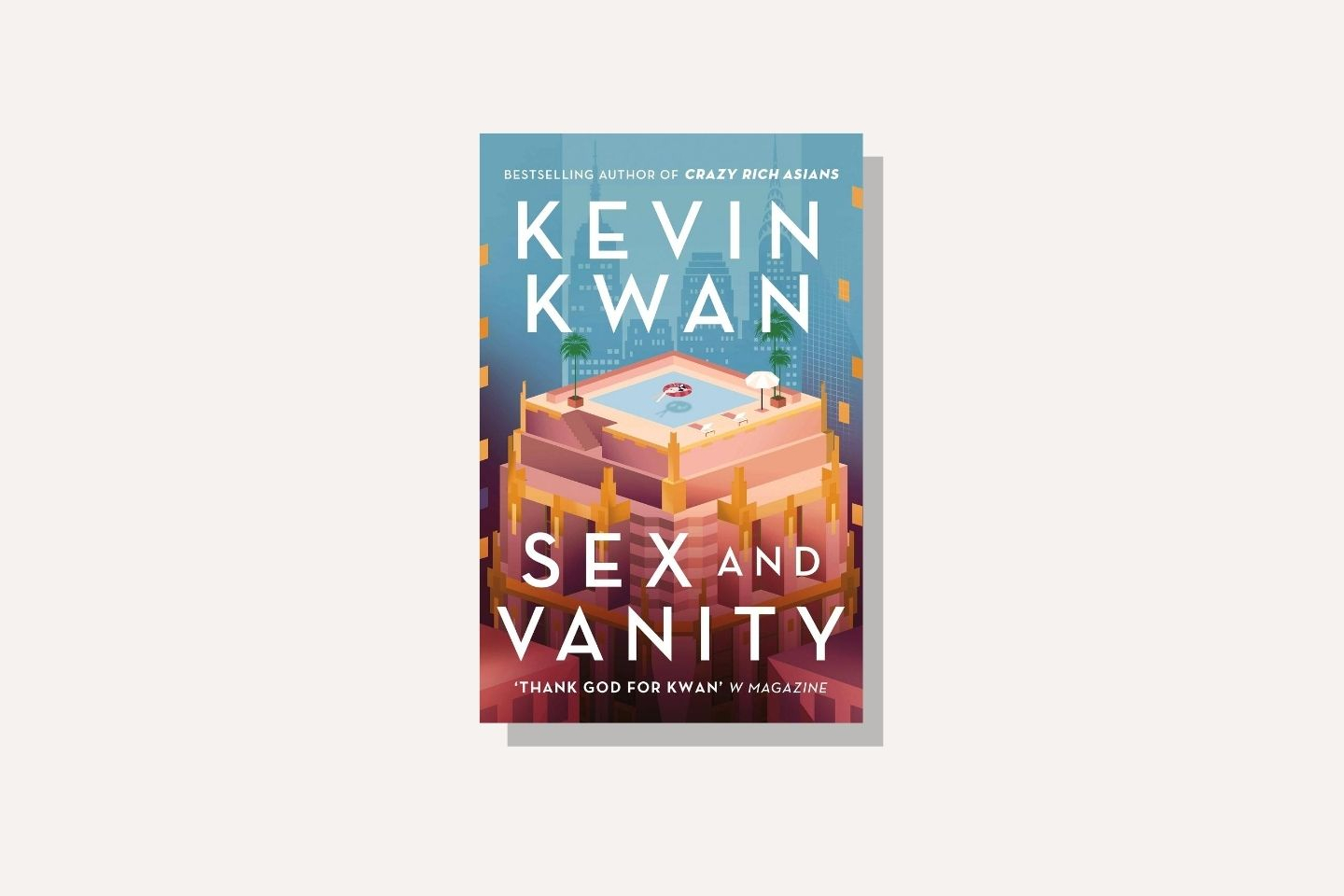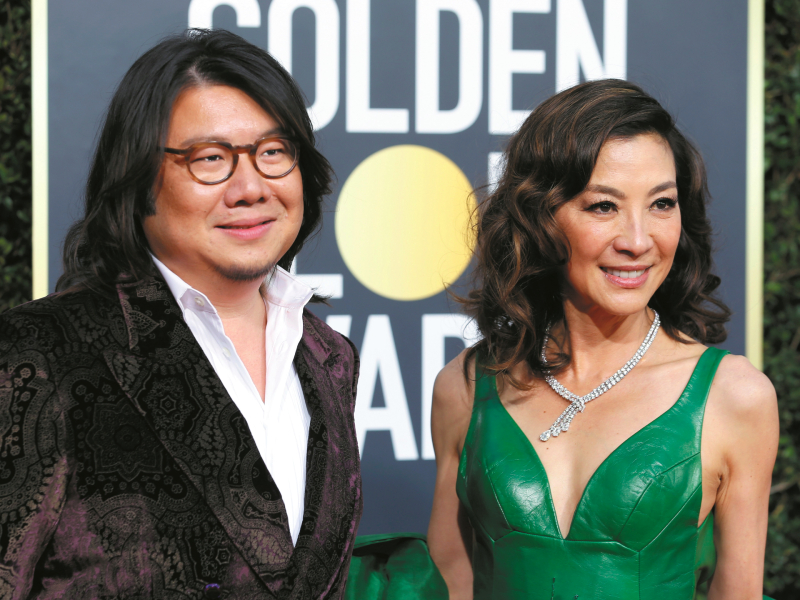
Fans who feasted on the smorgasbord of decadent luxury in Kwan’s earlier books will enjoy the same in Sex and Vanity (Photo: Kevin Kwan)
After three novels built around an uber-high-net-worth extended family — Crazy Rich Asians, China Rich Girlfriend and Rich People Problems — Kevin Kwan leads a fresh cast of characters to the isle of Capri and then the Hamptons, New York, for more over-the-top hijinks in Sex and Vanity (Hutchinson). The difference between this June 30 release and his first trilogy is that it has more froth than bite, with more superfluous extravagance than satire.
Sex and Vanity dives into the inviting waters of Capri, where Lucie Tang Churchill arrives chaperoned by cousin Charlotte Barclay for the wedding of her old friend Isabel Chiu, a diplomat’s daughter, to Dolfi, son of Conte and Contessa De Vecchi.
Nineteen, impressionable and on her first trip without her mother, Lucie is enrapt with the beauty of her surroundings and the posh festivities lined up for guests. But the idyll of Capri is shattered when she meets fellow guests George Zao and his mother Rosemary, who offer Lucie and Charlotte their room so they can look out at the crystal clear waters and the imposing Faraglioni rocks.
Affronted by handsome George — born in Hong Kong and schooled in Australia, with a surfer’s body to show for it — and his flamboyant mum, who means well but meddles in typical Chinese-auntie fashion, Lucie tries to stem her conflicting emotions. But sun, sea, the romance of the occasion and youthful desire push them to lock lips in the dark ruins of a Roman villa.
rts29lep_1.jpg

Then something happens that tears the pair apart.
Five years later in New York, as Lucie, now an art consultant and newly engaged to art historian Cecil Pike, pictures wedded bliss, the mysterious George and Rosemary reappear in her life. Lucie has to work through her muddled feelings for George again, none the wiser for the water passed under the bridge.
In Capri, the naïve, teenaged Lucie had been in two minds: she was attracted to George but could not stand him. Now all grown up, she is no clearer about how she feels. Confusion drives her to do something underhand to get him and Rosemary out of the picture.
What is also unclear is what she sees in Cecil, a man whose personality is at odds with his fiancée, who seemed level-headed at the start of the book. There is confession and admission eventually, but it does not warm Lucie to readers who have difficulty relating to her.
The plot is thin. One does not expect depth from a rom-com, but the characters, colourful but oh-so-familiar, could have been better fleshed out to add weight to the story. As such, we are curious but not moved by their flippant concerns.
American-born Dr Marian Tang, Lucie’s mum and one of the US’ pioneer geneticists, “sublimates her Asian side” to help her children assimilate into Western culture. She has an easy relationship with son Freddie that stops at convivial laughter and shared jokes, leaving us wishing for more.
“Madam Buzzkill” Charlotte, the queen of guilt trips, loses her barb as she tries to make amends for something despicable she did in Capri. There is the formulaic yoga guru cum life coach, Auden Beebe, who willingly lends mega-rich clients his ear. The affluent Ortiz sisters of Manila add bits of gossip to the goings-on though nothing that scandalises or intrigues. And George remains an enigma readers hardly know.
But Rosemary, who fancies big hats and speaks funny English, holds her own among high society. The feisty Sultanah of Penang, who steps into a speedboat for a ride to Villa Lachowski dressed in Pucci caftan and matching Pucci hijab, is a breath of fresh air.
In interviews on Sex and Vanity, Kwan says the book is a homage to E M Forster’s A Room With a View, adapted into film by Merchant Ivory in 1985. In the 1908 novel, a British lass shuns Victorian social mores by choosing to marry a man she met while holidaying in Italy.
Biracial Lucie’s dilemma is hooked to her Asian genes and gender. Despite her perfect blend of Eastern and Western features, the China doll who “always needed fixing”, to quote grandma Conseulo Barclay, struggles to find herself. Brother Freddie has no such problem as he charms his way around with his irresistibly high cheekbones and rich chestnut mop.
It is not just a matter of white Anglo-Saxon Protestants versus half-Chinese. Charlotte, a senior editor at Amuse Bouche magazine, barely whispers the word Jew when recounting why the family disapproved of the boy she used to date. Rosemary is deemed “too Hong Kong” by the more catty guests gathered at Capri. The racial bias, overt or subtle, extends to Hispanics, we are told.
Sex and Vanity pits old-money, class, refinement, pride and discretion against crass, loud newly minted wealth, as flaunted by Cecil, a billennial (billionaire millennial). He sees the perfect trophy wife in Lucie and cannot wait to count the likes for his proposal video — taken at the steps of the Metropolitan Museum of Art, with Lucie wearing her emerald engagement ring that looks “like a tumour on her finger”, according to Freddie.
Fortune, social status and pedigree — Lucie’s family on her father’s side are Mayflower descendants who married into British aristocracy — accord privilege and self-indulgent trappings to the lucky handful, including membership at posh clubs, exotic holidays, fine dining, private jets, designer threads and the latest hot wheels.
Well, fans who feasted on the smorgasbord of decadent luxury in Kwan’s earlier books and are hungry for more will enjoy the same relentless parade of brands and showy collections money can buy. There is also the unceasing name-dropping: It is always fun to catch up on celebrity gossip and there is a voyeuristic delight in catching famous and glamorous people unawares.
The women in Sex and Vanity constantly try to pin down what each is wearing, and get it wrong though they think they know. But Kwan steps way beyond gowns, leather and trims. He takes readers into art, music, architecture, film, furniture and furnishing, gems, poetry, song and highlights of the social calendar, with chirpy asides that clue us in on who, what, where, when and why. Occasionally, he takes a dig at someone in the story, lifting the lid on white lies or an outright cover-up.
Each time the author introduces a character, he lists her/his entire educational résumé. People reveal where they studied within minutes of meeting someone “to rank and stratify each other”, Kwan says in an interview. Listing the schools is his way of poking fun at this elitist habit. He footnotes what a few of the institutions are known for, and their anecdotal reputation, as well as their distinguished alumni.
The best parts of Sex and Vanity are those that reveal little-known corners of Capri, where the magic stirs after the last ferry boats leave come evening. Singapore-born Kwan, who escapes to the island almost every summer to soak in its radiance, leads readers around in the way only someone who loves the place and has plumbed its depths can, stopping at ancient sites, natural wonders and architectural landmarks to point out their unique features, before heading for shops that offer the most comfortable sandals and the freshest seafood. No wonder he dedicates the book to “the island that feeds my soul”, as well as New York, “the city that took me in, nurtured me, and changed me forever”.
London and Paris, which have left imprints on his heart, are the inspiration for the next two books in his cities trilogy. There will be over-the-top characters and wild stories, but fans can be sure the observant Kwan will show up the foibles of the snooty rich for a hearty chuckle.
This article first appeared on July 13, 2020 in The Edge Malaysia.


